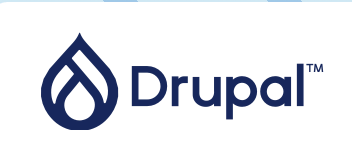CMS platforms are your savior when you are looking to build a website for your business. Whether you are a beginner, a professional, or running a business for the first time, the right CMS platform is the first essential step before starting your website. With the right CMS, you can save time and build an effective website within your budget.
Many CMS Platforms are available online, with each having its own set of features, pros, and cons. Here, we have created a list of popular CMS platforms well suited for most business needs.
What Are CMS Platforms?
CMS Platforms, also known as Content Management Systems is a software platform where you can create, manage, and publish content on a website without needing deep coding. You can build a user-friendly interface with interactive built-in themes, tools, and extensions.
Most CMS platforms offer you drag and drop tools to design your template without directly interacting with the web components such as HTML, CSS, or JavaScript. Some popular CMS platforms are WordPress, Wix, WooCommerce, Shopify, Blogger, Ghost, and more.
Market Share of CMS Platforms In 2024
Check the market share of CMS platforms in the table below.
| CMS Platform | Approximate Market Share |
| WordPress | 61% – 63% |
| Shopify | 6% – 6.7% |
| Wix | 3.8% – 5.2% |
| Squarespace | 3% – 3.3% |
| Joomla | 2.3% – 2.5% |
| Drupal | 1.3% – 1.5% |
| Adobe Experience Manager | ~1.2% |
| Webflow | ~1.1% |
| PrestaShop | ~1.0% |
| Google Sites | ~0.9% |
| Bitrix | ~0.9% |
| Duda | ~0.8% |
15 Popular CMS Platforms In 2025
We have handpicked the top 15 popular CMS platforms based on everyone’s needs. Whether you are a blogger, e-commerce site, business, or developer building a custom solution, you can choose any one of these based on your requirement.
| CMS Platform | Best Suited For Whom |
| WordPress | Bloggers & businesses |
| HubSpot Content Hub | Marketing teams & sales |
| Joomla | Developers & enterprises |
| Wix Studio | Designers & creatives |
| WooCommerce | Online store owners |
| Drupal | Large organizations |
| Shopify | E-commerce merchants |
| Webflow | Agencies & designers |
| Strapi | Developers & startups |
| Ghost | Writers & publishers |
| Magento | Enterprise retailers |
| Squarespace | Creatives & small biz |
| BigCommerce | Growing online stores |
| Blogger | Hobbyist bloggers |
| Bitrix24 | Sales & project teams |
1. WordPress

WordPress is one of the most popular CMS platforms, with over 40% of websites running on WordPress. It is an open source platform with extensive support for plugins, and nearly all tasks are easy. You can easily make an appealing web interface even if you are a beginner.
You will easily find a lot of websites on the internet hosted on WordPress, ranging from simple blogging websites to large e-commerce websites. The latest version of this CMS platform is WordPress 6.8.
- WordPress provides over 58k+ plugins to support the various needs of its users
- Flexible dynamic themes
- Advanced SEO tools
- Flexible design tools
- Use the block editor to see how your site will look in real time
- Get instant page loading with speculative loading in WordPress 6.8
Anyone looking to host their website on the internet, including bloggers, small businesses, nonprofits, and larger organizations, who want to build their website without coding.
![]() Join Our Digital Marketing WhatsApp Channel
Join Our Digital Marketing WhatsApp Channel
2. HubSpot Content Hub

HubSpot Content Hub is a complete Content management system designed for businesses and marketers for a smooth website hosting experience. It has a strong 2,50,000+ customer base across over 130+ countries. This CMS is built on the CRM platform of HubSpot, supporting automation, sales, services, and much more.
- You can create, manage, and scale personalized content across the platform.
- HubSpot helps you give tough competition in the content market with the help of built-in AI agents.
- You can create appealing blogs with the help of AI blog writers on HubSpot.
- You get SEO recommendations, A/B testing, video, and podcast hosting with this CMS platform.
Read More: Top Freelance Copywriting Jobs for Beginners to Earn ₹2000–₹5000/Day in 2025
3. Joomla

Joomla is an open source CMS platform that has been around for about 20 years now. This platform is known for its built-in features and flexibility. It is an easy-to-use CMS platform for anyone who wants to have more control in making their website without getting into real advanced coding.
- This is an open source CMS platform available for free on the internet.
- Joomla is search engine friendly, hence better ranking and visibility
- It provides a secure environment with multi factor authentication, state-of-the-art code, user management, and permission
- It provides a higher level of accessibility features with responsive web design, WCAG 1.2 compatibility, built-in accessibility tools, and more.
- It offers faster loading with flexible cache management.
- You can easily scale your website with the Zoomla CMS platform.
Developers or organizations who need structured and community-driven sites, including multilingual support, can enroll in this course.
4. Wix Studio

Wix is a powerful website builder that gives you a higher degree of freedom for designing your website. It is integrated with AI website builder support and tools, which help you create a unique & personalised business ready website within minutes.
You can either choose a pre-designed theme or start completely from scratch. Build websites tailored for different screen sizes like phones, tablets, and desktops.
- You get in-built AI design tools and AI website builders to make websites within minutes.
- Get built-in client feedback and collaboration features suitable for freelancers
- Support managing multiple websites in one place
- Make your website effortlessly with the drag and drop feature
You get a free plan for a limited time with a Wix watermark. However, to design a custom-made website, you will need to purchase a basic, standard, or plus plan.
5. WooCommerce

WooCommerce is a popular and trusted WordPress-powered e-commerce platform where you can build, sell, and scale your e-commerce store with advanced levels of customization. You can easily launch your online store with WooCommerce hosting. It is not a complete CMS platform as it runs on top of WordPress CMS.
- WooCommerce is a free CMS platform where you can host and publish your online store on the internet.
- You can either start building your website from a built-in theme or completely from scratch.
- It provides a lot of extensions that can help you add more functionality to the site.
- You can easily complete payments using PayPal or Stripe payments by default, or you can also add other payment gateways through add-ons.
The WooCommerce plugin is available for free, but you might need to pay extra for using plugins and extensions for your online web store.
6. Drupal

Drupal is a highly secure and flexible open-source Content Management System used by large enterprises, universities, and governments. Its main objective is to handle complex sites with heavy traffic, offering complete control over content and user roles.
- You can build sophisticated websites using built-in tools helpful for the content and marketing teams
- It offers enterprise-grade security for its clients
- It offers a comparatively low cost of ownership
- It provides rich user centric experiences with high integration power and a structured content format
- Being an API first platform, it offersa high level of flexibility
- This is built for large scale enterprises, government, and universities requiring complex workflows
This is an open source platform, but to use the hosting service or other extension, you will need to have a premium plan.
7. Shopify

Shopify is one of the most popular e-commerce CMS platforms where users can create their own store online and sell worldwide. It simplifies building websites for business with built-in tools for managing every task for your store i,e. Inventory, payment processing, market campaigns, and more.
- On Shopify, you won’t need to install or buy a hosting plan for your website
- You can easily accept payments with multiple payment gateways using credit cards, debit cards, and other platforms.
- There are many extensions and plugins available on Shopify to meet your specific needs and requirements.
- You will get 24/7 support through multiple channels, including Phone, email, chat, and other platforms.
- This CMS platform is suited for online retailers and small to medium level businesses.
Shopify is an open-source software available for free online. Also, you do not need to purchase a plan when your sales increase, unlike the BigCommerce platform.
8. Webflow

Webflow is a CMS platform along with a web design tool, which can be used to design user-friendly, visually designed production-ready code. You can easily analyse, build, edit, publish, and scale websites based on your needs.
- Designers can easily manipulate HTML, CSS, and JavaScript all inside this website builder.
- High degree of freedom to add, edit, remove, and update content in the Webflow CMS
- You can easily analyse the performance using built in tools like AI-powered personalization, A/B testing, SEO, and more.
- You can also scale your site with tools and connect with your tech stack with APIs.
This CMS platform is suitable for designers, agencies, and startups who want control over their website design without heavy coding. It is an open-source platform with premium plans for advanced features.
9. Strapi

Strapi is one of the popular CMS platforms that is used to build modern websites with a headless CMS. It offers a high level of customization and hosts your projects based on your preference, either on your server or in the cloud. This CMS platform is well suited for developers who want full control over their content APIs.
- This CMS provides developers with a fully customizable CMS.
- It also provides both REST and GraphQL support to deliver content efficiently
- You can build and manage your content infrastructure with the content type builder and custom fields
- Strapi offers a vibrant community with thousands of developers for support and collaboration
This platform is suitable for developers and agencies who want to build custom applications, scalable solutions. This is an open source software with paid plans available for hosting and other advanced features.
10. Ghost

Ghost is a modern CMS platform especially for building custom websites for business. This is a platform primarily based on memberships and publishing. You will find it frequently popular among independent writers, bloggers, and small media companies in 2025 due to its simplicity and monetization features.
- Ghost gives you complete control over the customization of your website. You can either build from scratch or take a custom Ghost theme.
- This is built on a lightweight Node.js engine
- Easily manage your membership and get a better understanding of your audience.
- You will get clean SEO code for better optimization
- You also get native analytics with Ghost to get a complete report around your content.
- It supports a large number of third party applications on its platform.
This CMS platform is suited for bloggers, developers who want to get involved in some level of coding, indie creators, and more. For the self-hosted version, you can go free, but the hosted plans are paid.
11. Magento

This is one of the best open source e-commerce CMS platforms generally used by big companies with a lot of complex workflows and integrations. You can easily get a free version to download and install on your web hosting account.
This CMS platform provides you with high customization options and extra add-on features along with a high degree of customization. You can easily handle a large number of visitors without slowing down your website.
- Magento is an open source CMS platform for e-commerce platforms.
- Growing your customer or product base is easy with Magento as it can handle a lot of traffic than other CMS platforms.
- This CMS platform can handle complex traffic flow without slowing down the site
- You can connect different payment gateways to Magento, like PayPal, bank transfer, cash on delivery, and more.
The price of Magento is heavy, which is not reflected anywhere on its website. You will have to personally connect with their team to know the price. However, the price of Magento starts with $22,000 per year, which might increase based on your requirements.
12. Squarespace

Squarespace is a website builder CMS platform known to provide appealing built-in themes. This website is suitable for small business owners and brands. You can choose from any designer website template and then customize it as per your needs and style.
- Get built in marketing tools to promote your business online.
- Squarespace provides visually engaging templates that can be customized according to the needs of the brands.
- You can start with Squarespace for free with a trial and then choose a subscription plan based on your needs.
If you want something different based on design, you can try Squarespace, suitable for freelancers, local businesses. It provides a trial version, but you will need to purchase the subscription to get full access.
Read More: What is Website Content Writing? How to Become, 10 Effective Tips
13. BigCommerce

BigCommerce is a professional level e-commerce platform among so many CMS platforms, providing a space for B2B as well as B2C businesses online. Even if you are a small business, you can make large and growing online store.
- BigCommerce is an e-commerce website builder
- It provides headless support
- You can either plan a website for a B2B or a B2C business.
- Get 24/7 customer support to solve any of your queries in the service.
This CMS platform is suitable for growing online stores and enterprise-level e-commerce brands. It is not free; while you can start for free, you will have to pay once you set up your store.
14. Blogger

This is one of the most popular CMS platforms, especially in the field of blogging. It’s been there since 1999 and is a free service platform provided by Google. You can either use your own domain or start with Blogspot in the domain.
It is one of the best options when you are looking to monetize your blogging without paying a hefty subscription fee.
- Blogger is easy to use, where you can set up your blog channel in minutes.
- You can use a number of built in gadgets to enhance your blog page for free.
- You do not need to install, update, or pay for any hosting plan as it is provided by Google
- You get sufficient space where you can have 20 static pages with 15 GB space available for images, which are stored in Google Drive.
This CMS platform is suitable for bloggers who want to monetize their website and publish interactive blogs. You can start publishing blogs without paying any fee. It is free unless you plan on choosing a custom domain.
15. Bitrix24

Bitrix24 is a CMS platform where you can manage your tasks, projects, sites, collaborate, customer relationships, and even implement automation. The basic level for this website is available for free, which offers around 12 user accounts and up to 5 GB of online storage.
- You get a lot of features to manage your website if you are a small or mid-sized business.
- You can use the drag-and-drop interface to design your online store
- You will get free hosting with Bitrix24 for your website
- You can start for free with Bitrix24.
The basic plan at Bitrix24 costs you around $43 per month, and the professional will costs around $175 per month. You can also choose a lifetime plan and others. It is suitable for small or medium size companies.
Become a Pro in Digital Marketing With PW Skills
Build your career in Digital Marketing with an AI powered Digital Marketing Course offered by PW Skills. This course is suitable for newcomers, self learners, and business owners looking for digital growth of their business and building online presence.
Get in demand skills designed for today’s AI driven landscape with optimised SEO, social media strategy, content creation, analytics and more to build your career in digital marketing.
Looking for More?
- Get industry led live sessions with professionals in digital marketing
- Build a fully job optimised project portfolio which demonstrates your skills, and strengthens with projects.
- Get opportunities for full time jobs or freelance clients for different digital marketing tasks.
- Get personalised career assistance to prepare for interviews and land your dream job
- Get industry recognised certifications from PW Skills
- Enhance your job readiness with practical skills and expert career guidance.
CRM Platforms FAQs
Q1. Which is the most popular CMS platform?
Ans: WordPress is one of the most popular CMS platforms, where more than 40% of websites are made with WordPress worldwide.
Q2. Which is the fastest growing CMS?
Ans: Wix, Shopify, Webflow, and WooCommerce are some of the fastest-growing CMS in the last few years.
Q3. Which CMS is the fastest?
Ans: WordPress is often considered one of the fastest CMS platforms available for building any type of website online.
Q4. Does CMS affect SEO?
Ans: Yes, CMS matters for SEO as it affects the complete structure, speed, and other important factors to rank your content online on search engines.

